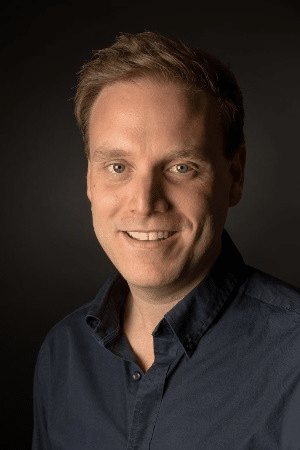In recent years I have made the technical side of sustainability more accessible to our employees, due to the fact that Corporate Sustainability actions and jargon can sometimes be quite distant from people.
For example, we have set up and deployed a suite of tools – including a series of self-developed E-Learning – to explain our Food for Biodiversity plan, which includes all our sustainability activities, in simple language.
In addition, in line with B Corp standards, we have made sustainability part of the annual performance cycle. This allows everyone to discuss their contribution to sustainability.
Finally, we have launched a new leadership model in which we make sustainability and systems thinking an integral part of the leadership qualities of the future, supported by specific development content and workshops. Of course, we can also make further improvemts to this.

Absolutely! A good example comes from integrating sustainability into our performance cycle. Every year we talk to each team about their goals for that year. For example, you now see that our Sales teams have agreed to have a conversation with our most important customers at least 3 times a year about biodiversity, its importance and how our consumer behavior contributes to this. Our teams must be able to speak with knowledge and confidence to make these types of conversations possible. We have given them the materials and training, but you now see that they can act as ambassadors to other parties. There are other goals for Finance; so each department has their specific focus.
The importance of sustainability is indeed incorporated into our job profiles. It is not included in the payment of bonuses, but it is linked to the general performance over the year and that is in turn linked to the salary development of our employees. We also use it as a more long-term incentive, and not as a short-term incentive. It only weighs for a certain percentage, but in this way sustainability becomes something with which people can grow and develop themselves, both substantively and financially.

One of the most important first insights was recognizing and being able to act on the fact that including sustainability in your mission or your statutes does not mean that everyone knows why it is important, is able to promote it and knows what his/her role is. The translation – and thus closing the gap between mission and implementation – is extremely important.
The same goes for leadership. I believe that everyone has a good intention, but sometimes the short term comes into play – the financial pressure, all the legislation and regulations are now coming at everyone in big waves. You see that a balance has to be restored. How do you navigate between the short term, which is still important, and the long term: what trade-offs do you make? I also believe that people should recognize that this is difficult and that this balance should be there; it’s not always perfect.
Governance is really a means to this. If you really want to take steps, you must ensure that you anchor sustainability in your organization. This way you can go back to what you find important: what do we stand for, which KPIs have we signed off together? These are firmly anchored within our governance, for example in the Sustainability Committee, to which we have to report regularly.
You will always be faced with choices; For example, now the cocoa price is 4x higher than last year and we have to determine how to deal with this. By anchoring sustainability you make it easier to put the short term aside.
The biggest positive tactic is a clear vision that is more long-term. That may sound easy, but it is really necessary. About 10-12 years ago, the then CEO set a very clear course: a focus on healthy and organic food. What did not contribute to this course was being sold, and the proceeds were used to purchase new companies in line with the new ambition.
The ambition was then translated into very practical objectives in 3-year plans. Like other companies, we have our 2030 targets, but we break them down into shorter steps in between.
Then comes making it measurable and being transparent. Join the relevant organizations that can say something about it, such as Science Based Targets initiative, ESG Scorecard, and B Corp. External, objective parties that look at this very neutrally and honestly, with whom you can also go public.
Finally: make it human. Ultimately, it remains human work; people have to come up with, and market interventions and innovations, and consumers have to buy it.
These are probably not shockingly new insights, but it is about consistency in implementation. There are plenty of new ideas and solutions, but things often go wrong in their implementation and in adhering to long-term values, even under pressure.